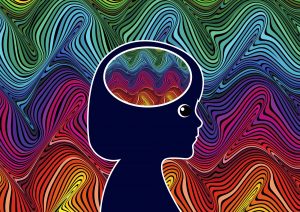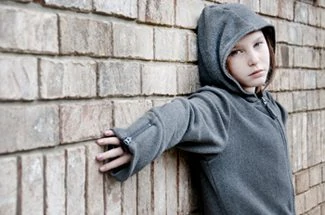As a child growing up in a home suffused with trauma, life always felt uneasy – like something bad was about to happen. Always. This ever-present fear often got expressed through impatience, rushing, and urgency. It was a defense against instability and readiness to deal with any threat.
I was envious of the friends I’d see walking slowly to the library, with mothers who would read books to them softly and calmly. That was the kind of experience my body wanted.
Vicarious trauma has similar effects. It’s why we strive to insulate our granddaughter Anna from much of the negative news that’s delivered through our devices – and why we remain highly selective in our own media consumption, modeling the behavior we want her to emulate. We stay informed, of course, but we don’t need our minds hijacked by this atrocity or that tragedy, 24/7, obsessing over every detail.
Still, during the historic siege on the capitol, Anna was exposed to several disturbing videos of people being assaulted. Unsurprisingly, she had a very hard time sleeping that night. Her body responded – with fear.
What Do You Think With?
Carl Jung once wrote of a meeting with Pueblo Chief Ochwiay Biano in New Mexico, in which he asked Biano about his perspective on white settlers:
“…They are always seeking something. What are they seeking? They always want something, they are always uneasy and restless. We do not know what they want, we do not understand them. We think that they are mad.”
I asked him why he thought they were all mad.
“They say that they think with their heads,” he replied.
“Why, of course, what do you think with?” I asked him in surprise.
“We think here,” he said, indicating his heart.
Yet as my experiences with trauma show, the heart – along with the body around it – does think. We just live in a culture that values its suppression and elevates reason as the ultimate cognitive power. We’re socialized to accept this as the norm as we constantly seek the thing that we feel will complete or fulfill us – only to reach it and that we still seek more.
Perhaps what we are actually seeking is what we’re taught in various ways to discount: our heart thoughts. Denying ourselves what we need, we remain uneasy, restless, fearful.
Feeding the Monster
I’m reminded here of another story once told to me by an adult student who was dating a young man from a remote area of Mexico. He had grown up in a small village. He had never been to a movie theater. So when he came to the US for a visit, she thought it might be fun to take him to one.
As soon as the trailers came on the screen, loud and frantic, the young man could hardly sit in his seat. He jumped at every loud noise. Within minutes, he wanted to leave.
“I never understood how accustomed we’ve become to that kind of sensory onslaught until that moment,” she said. “We don’t even recognize it anymore.”

The media reflects that appetite for adrenaline-charged life. You can hear urgency in the voices of the newscasters, even the sportscasters. It comes at you slickly packaged in advertising pitches. It comes through the stories in the violence-riddled movies that tend to dominate the blockbuster lists. Violent video games feed the monster.
How to Live Through Difficult Times
More than ever through the pandemic, I’ve become aware of how, in our sense of impatience, we actually miss the true urgency.
I see parents worrying about their children falling behind in school, wondering whether they will be truly ready for college and life after, and whether they’ll have any kind of security in the future. These are legitimate concerns, of course, but they are also head-thinking.

Anna watches me and sees how I respond to the chaos and trauma around us. If I get anxious, start rushing, feeling the pressure of “not enough,” she becomes more anxious and less focused, too.
But if I slow down, listen to soft music, and invite Anna to cook with me as we talk, dance, and share ideas, she settles down. She grounds into the present moment and is more capable of focusing on any work that she is ready to do. I teach, through my presence, how to live through difficult times.
Try This
Take a moment to slow down with me now. Put on headphones or earbuds, close your eyes, and listen to the song below, which incorporates the words of a beautiful poem by Kahlil Gibran, “On Children.” As the song plays, pay attention to the thoughts of your heart. What is your heart telling you?





